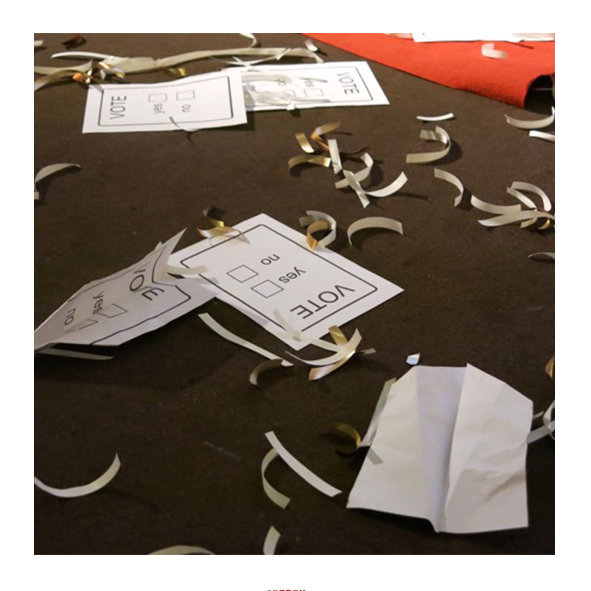Imaginary Republic
Initiated by Brandon LaBelle, in collaboration with Helene Frichot, Georgia Kotretsos, Lise Skou, and Diego Rotman.

The Imaginary Republic considers the dynamics of civic culture in today’s global environment, and how developments in economic, social and political realities have led to an intensification of public argument and dissident imagination. The project converses with current social movements across Europe and elsewhere, and sets out to explore transformations in political consciousness. In particular, it aims to research creative expressions of political subjectivity with an emphasis on emancipatory practices. For instance, protests around social housing in Berlin have prompted a drive toward “re-communalization” which reconfigures the relation between local and migrant communities, drawing in the arts community through questions of gentrification. Or the ongoing alignment between neoliberal economy and education in Britain has sparked the emergence of independent schools and free pedagogical platforms, leading to new forms of shared work and knowledge production. These examples act as counter-narratives to major structures of national and regional governance, and embody a creative political consciousness – an insurrectionary drive. What consequences do such expressions have for understanding civic culture and its resistances? What knowledges might the interaction between the arts, the critical imagination and the political generate today? Is there an imaginary republic to be found within the drives and mechanisms of global capitalism, and from which new solidarities can be assembled beyond the traditional space of appearance? Utilizing the extraordinary wealth of civic imagining at play in contemporary culture, The Imaginary Republic aims to rethink utopian tendencies, charting out contemporary expressions and exploring their practical challenges. This leads into questions of shared space and the architecturally contested, hopes and dreams for non-capitalistic economies and commoning, and the productions of dissident publics. Fundamentally, the project aims to incite forms of critical togetherness, which can lend to nurturing dialogues and emancipatory practices. In particular, the project searches for ways to engage public life as a creative material – a wild imaginary.
